The views expressed in our content reflect individual perspectives and do not represent the authoritative views of the Baha'i Faith.
As is commonly known, Baha’is do not participate in partisan politics or political debates:
Religious matters should not be confused with politics in the present state of the world (for their interests are not identical). Religion concerns matters of the heart, of the spirit, and of morals.
Politics are occupied with the material things of life. Religious teachers should not invade the realm of politics; they should concern themselves with the spiritual education of the people; they should ever give good counsel to men, trying to serve God and human kind; they should endeavour to awaken spiritual aspiration, and strive to enlarge the understanding and knowledge of humanity, to improve morals, and to increase the love for justice. – Abdu’l-Baha, Paris Talks, pp. 158-159.
For Baha’is, this principle of non-involvement with partisan politics emerges from the fundamental purpose of the Baha’i Faith—unity. “So powerful is the light of unity,” Baha’u’llah wrote, “that it can illuminate the whole earth.” – Epistle to the Son of the Wolf, p. 14.
To this end, Baha’is approach social advancement through collective discourse and action rather than taking sides.
That said, Baha’is who live in democratic countries do participate in the electoral process, voting to have their say in deciding who represents them and leads their country. In fact, Abdu’l-Baha called voting necessary for all citizens:
… as the government of America is a republican form of government, it is necessary that all the citizens shall take part in the elections of officers and take part in the affairs of the republic. – Tablets of Abdu’l-Baha, Volume 2, p. 342.
This shows that each citizen of a democratic country has the important responsibility of expressing their opinion through their vote.
Shoghi Effendi, the Guardian of the Baha’i Faith, also said that the Baha’is “… may vote, if they can do it, without identifying themselves with one party or another.” – Directives from the Guardian, p. 81.
So Baha’is vote, but don’t support one political party over the other. How does that work?
First, Baha’is don’t support political parties simply because no political party platform fully aligns with the principles of the Baha’i Faith:
No Baha’i can be regarded as either Republican or Democrat, as such. He is above all else, the supporter of the principles enunciated by Baha’u’llah, with which, I am firmly convinced, the programme of no political party is completely harmonious …. – Shoghi Effendi, to the National Spiritual Assembly of the United States and Canada, January 26, 1933: Baha’i News, No. 85, July, 1934, p. 2.
Of course, a political party may have policies that promote some Baha’i principles, but there will always be other aspects that conflict. Baha’is do not want to affiliate with any group that entails repudiation of any of the principles and teachings of their Faith.
So then how is it possible for Baha’is to vote if they don’t support partisan politics? Baha’is take the approach of voting for the person and their policies, not the party. If the laws of their country allow it, Baha’is do not register to vote as members of any particular party, but instead maintain their independence.
Before an election, each Baha’i who wishes to vote carefully and conscientiously compares each candidate and their policies, character and experience, then chooses the person who they believe would be the most competent, humane leader. This means that each time a person votes, they may vote for candidates from different political parties, because they have no stated loyalty to any particular party or politician.
Even though the secular electoral process takes place differently than the Baha’i electoral process—where there are no partisan affiliations, no nominations and no campaigning—each Baha’i who votes can adopt some of the approaches in Baha’i elections, by voting for those whose policies share the most commonalities with the Baha’i principles: the promotion of world unity, the equality of men and women, freedom from religious and racial discrimination, the elimination of the extremes of wealth and poverty.
But while Baha’is individually decide which person to vote for, they endeavor not to get caught up in the cult of personality that sweeps through many countries during election season. Baha’is attempt to make a thoughtful, impartial choice, detached from the positive and negative messages portrayed in the mass media.
For Baha’is who choose to vote, even though they have carefully selected a candidate who they believe to be most suited to the office, they must strive to fully detach themselves from the results. Baha’is abide by the decision of the majority, so they cannot judge a justly-elected leader as the wrong choice, or criticize after the fact. They must be obedient to their government, and refrain from spreading disunity through negative political feedback or public criticism.
So Baha’is obey their governments, unless those governments ask them to violate core Baha’i principles. Baha’is would never, for example, follow a government order that required them to reject their beliefs or negate their principles. In cases such as this, Baha’is have the liberty and even the obligation to speak up against such a requirement and set forth the truth. For although Baha’is can participate in electing leaders who they believe will make a positive contribution, in the end, they expend their energies and hopes on the society-building powers of their Faith.


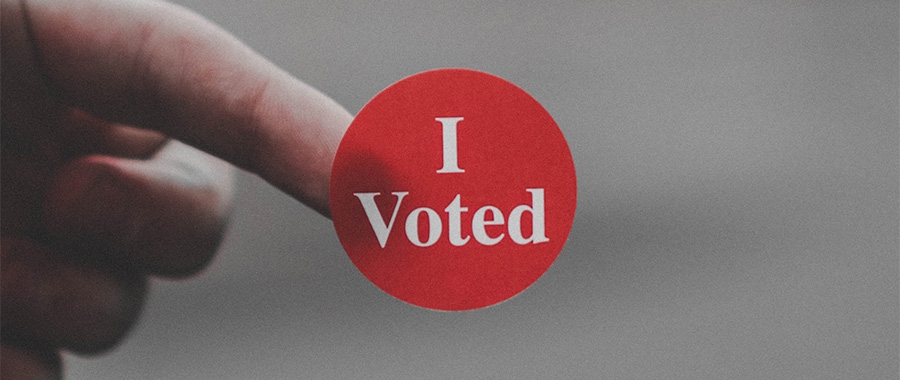

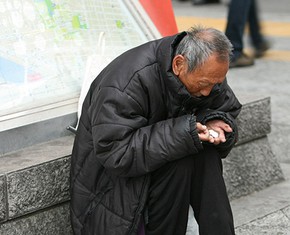







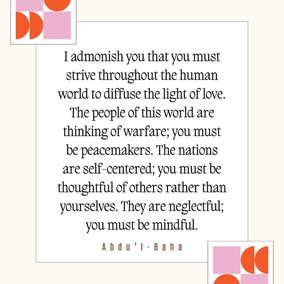
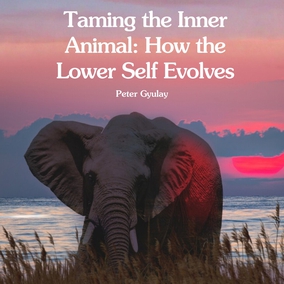
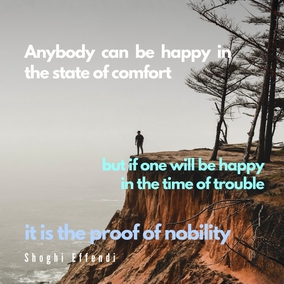

Comments
Sign in or create an account
Continue with Googleor